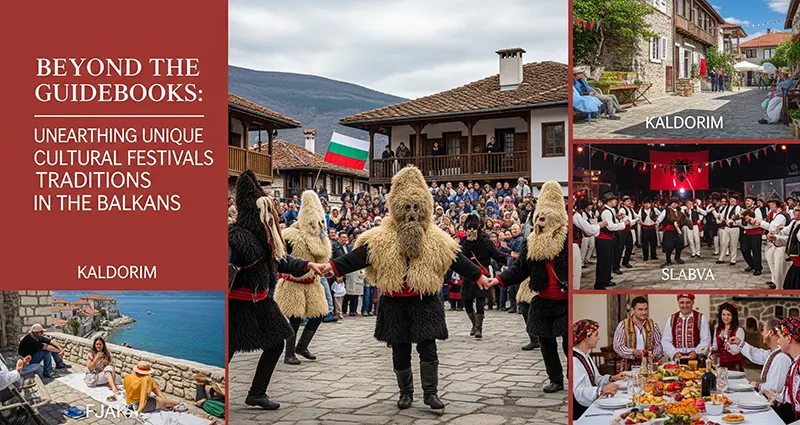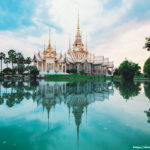The Balkan Peninsula is a vibrant tapestry of cultures, where ancient traditions and folk customs are not just relics of the past but living, breathing elements of everyday life. While many travelers flock to the region for its breathtaking natural beauty and historical cities, those who seek to delve deeper can find a treasure trove of unique festivals and rituals that offer an authentic glimpse into the soul of the people. From fiery winter celebrations to heartfelt musical gatherings, here are some of the most unique cultural festivals and traditions to discover in the Balkans.
1. The Kukeri and Survakane (Bulgaria)
A potent symbol of Bulgaria’s deep-rooted pagan past, the Kukeri tradition is a spectacular and often intimidating ritual performed in the winter months. Groups of men, dressed in elaborate, hand-carved masks and thick costumes made of goat or sheepskin, parade through villages. Adorned with large bells, they dance and jump to create a cacophony of sound. The purpose of this ancient ritual is to scare away evil spirits and usher in a fertile new year.
Closely related to this is Survakane, a New Year’s Day custom where children use a decorated stick (a survachka) to gently tap family and friends on the back. As they tap, they recite a blessing for health, prosperity, and good fortune for the year ahead, receiving treats and coins in return.
2. The Galičnik Wedding (North Macedonia)
Held annually around St. Peter’s Day (July 12th), the Galičnik Wedding is a two-day traditional festival that reenacts a centuries-old wedding ceremony. In the scenic mountain village of Galičnik, couples are married in a meticulously preserved ritual that involves traditional costumes, music, and the iconic Teškoto (The Hard One) folk dance. This dance, which symbolizes the hardships of emigration and the hope of return, is a powerful display of community and cultural identity. The festival not only preserves a unique tradition but also brings to life the rich heritage of the Mijak people.
3. The Guča Trumpet Festival (Serbia)
While the Balkans are known for their lively brass bands, the Guča Trumpet Festival takes this musical tradition to an electrifying new level. For one week every August, the small Serbian town of Guča becomes a whirlwind of sound as thousands of trumpet players and performers from across the country compete for the Golden Trumpet award. The festival is a high-energy celebration of traditional Serbian brass music, dance, and revelry. It is an immersive experience where music, food, and people from all walks of life come together in a joyous, unforgettable atmosphere.
4. The Bridge Diving Festival (Mostar, Bosnia and Herzegovina)
For nearly five centuries, young men of Mostar have proven their courage by diving from the iconic Old Bridge (Stari Most) into the frigid waters of the Neretva River below. This daring tradition, once a rite of passage, is now an annual competition held every July. The Mostar Bridge Diving Festival attracts divers and spectators from around the world. It is a powerful symbol of resilience and the city’s spirit, showcasing an ancient tradition of bravery and a deep connection to its historical landmark.
5. Nestinari Fire Dancing (Bulgaria and Greece)
In the Strandzha Mountains of Bulgaria, and in parts of Northern Greece, a mysterious ritual known as Nestinari or fire dancing is still practiced. On the feast days of Saints Constantine and Helena in June, participants in a trance-like state dance barefoot on a bed of smoldering embers. The ritual is an ancient tradition with roots in both pagan beliefs and Orthodox Christian faith, and the dancers are believed to be protected by the saints. It is a mesmerizing and profound spectacle, a testament to the enduring power of faith and ritual in the region.










